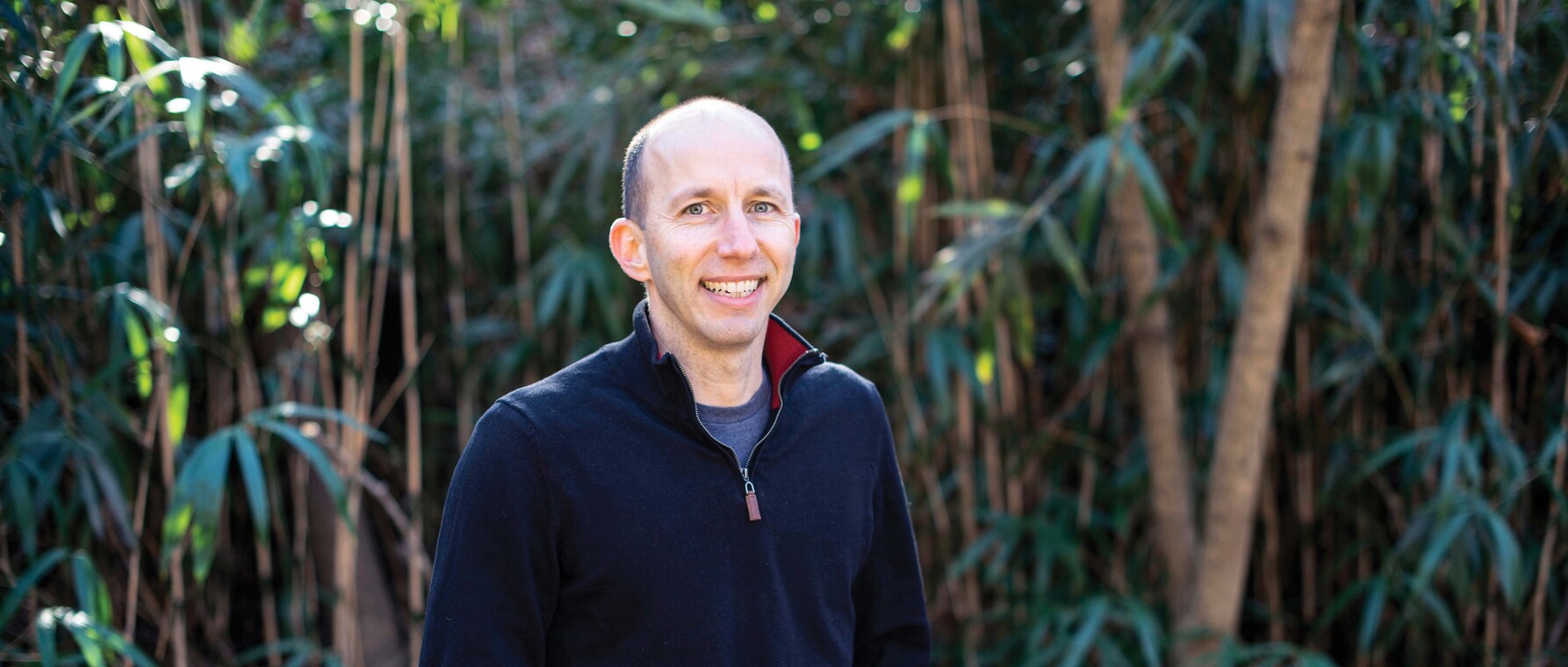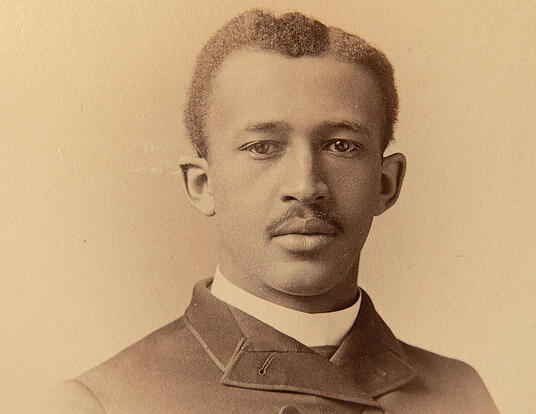Charting the Economics of Life
Unraveling exercise, metabolism, and weight

Listen to the extended interview with Herman Pontzer—as well as conversations with alumni thought-leaders in economics, the life sciences, the humanities, and many other fields—via the School's new Colloquy podcast.
An associate professor of evolutionary anthropology and Global Health at Duke University, Herman Pontzer, PhD ’06, is one of the world’s foremost authorities on metabolism and its development throughout human history. The author of the bestselling 2021 book, Burn, Pontzer promises to “blow the lid off how we really burn calories, lose weight, and stay healthy.”
In a March 2021 post on the Duke Research Blog, you referred to metabolism as “the economics of life.” What did you mean by that?
Evolutionary biologists like to think about energy in terms of a budget. It’s not so different than the budget we're all used to using with money; energy comes in and gets used to power all of our various systems and all of our 37 trillion cells hard at work all day. And just as we can understand a country’s priorities by looking at the way it spends its money, I can understand the priorities for my body by seeing how the energy gets spent—for example on my immune system, reproduction, or growth. That’s why an evolutionary biologist often takes an economic perspective on energy; it tells us a lot about what the price is for the evolved priorities of any organism.
Most people who lose weight—even if they have a surgical intervention like gastric bypass surgery—end up putting it back on. What sort of economics are at work there?
It’s as much evolution as economics. For half a billion years, losing weight has been a really bad sign for any animal. If you’re losing weight, your economics are not sustainable. You’re not bringing in enough to cover your expenses. This is true not just of humans, but of other species too. That pathway leads to death, so your body is built to defend its body weight. It doesn’t want to change weight very easily and if it’s going to make a mistake in one direction or the other, it surely doesn't want to lose weight. If you do lose weight, it wants to get back to where you were before.
I was trained to believe that I could speed up my metabolism through exercise. What’s the truth and how did you find it in northern Tanzania?
Northern Tanzania is where the Hadza live. They are a traditional hunter-gatherer community. They don’t have any machines or vehicles or electricity or anything like that. They hunt and gather wild foods each day to live. As you can imagine that's really physically demanding work. In fact, they get about five to ten times more physical activity every day than the typical American. So, we wanted to understand how metabolism works with the Hadza. And we felt sure going into it that they would have these really elevated metabolic rates—they would burn lots of calories every day, compared to the typical American, because they’re so active.
We spent a summer collecting data through the doubly labeled water technique [which measures energy consumption through the estimation of carbon dioxide elimination in the body]. That allowed us to precisely measure the calories burned by the Hadza. We got back to the US and had the data analyzed by one of the leading doubly labeled water labs in the country. And we were totally shocked. Because even though the Hadza are much more physically active than us, they don't burn any more calories than we do. In fact, when you account for things like body size, fat percentage, age—no matter how you want to slice it—there’s actually no difference at all in daily energy expenditure between Hadza men and women and adults in the US and Europe and other industrialized population.
What happened to the laws of economics—or the laws of physics for that matter? The Hadza are expending all this energy hunting and gathering. Don’t they need to consume an equivalent amount of calories to keep themselves fueled?
Let's get back to that economics analogy with energy. We tend to focus a lot on the energy that we spend on physical activity because we’re aware that our heart rate goes up, and the calories we’re burning per minute or per hour are much higher when we’re exercising. But even for someone in the Hadza community, most of the calories every day are burned on other stuff like the immune system and just the basic processes of homeostasis—you know, keeping yourself alive, the reproductive system, the nervous system, all of these processes we aren’t even really aware of. So, what we think is happening is that the Hadza are spending a bit less on those other processes to make room for physical activity. There’s no magic here. The laws of physics remain undefeated. Their energy is just spent on different tasks.
Is that good news or bad news for long-term health?
I think it’s good news. Here in the US, we see the same kind of compensation happening when people are more physically active. We see people start a new exercise routine and they’re not burning as many calories as you'd expect based on what was assigned to them by their program.
What we know is that exercise is really good for us. And one of the reasons it’s so good for us is that it lowers our inflammation levels, it lowers our stress reactivity, it gets reproductive hormones in a more healthy range. And so, we think those compensations that we see here in the US and in other communities are part of the health benefits of all that activity. I mean, when we look at the Hadza, they don’t get heart disease, they don’t get type two diabetes, they have lower incidence of reproductive cancers than we see here in the US. They’re really healthy, and I think that energy compensation—re-juggling the energy budget—is one of the big reasons that are so healthy compared to us.
What’s the message here? Is it that it doesn’t really matter how much activity you engage in?
If we’re strictly looking at weight loss, then the Hadza study is just more evidence that exercise alone is a pretty poor tool for weight loss. If you absolutely push it as hard as you can for as long as you can, you might see some weight loss until your body rights the ship. But even then, the expected weight loss from exercise alone is something less than five pounds. And we’re talking about after a year of diligent adherence to your exercise program. It’s not a great tool for weight loss—but it’s great for just about every other aspect of human health, including mental health.
So, how do the 74 percent of US adults who are overweight and the 43 percent who are obese get to and maintain a healthy weight?
Again, weight gain or weight loss is all about that energy budget: calories in versus calories out. What our data are showing is that the calories out part is really hard to budge. Your body doesn't want to change that very much. What that says is that obesity and overweight—these issues that we struggle with within the US—are about the energy coming in. It’s about diet. Now exactly what it is about diet is a whole other conversation that gets a little bit complicated. But bottom line: When it comes to weight loss and maintenance, you really are what you eat.
Photo by Lissa Gotwals
Get the Latest Updates
Join Our Newsletter
Subscribe to Colloquy Podcast
Simplecast





